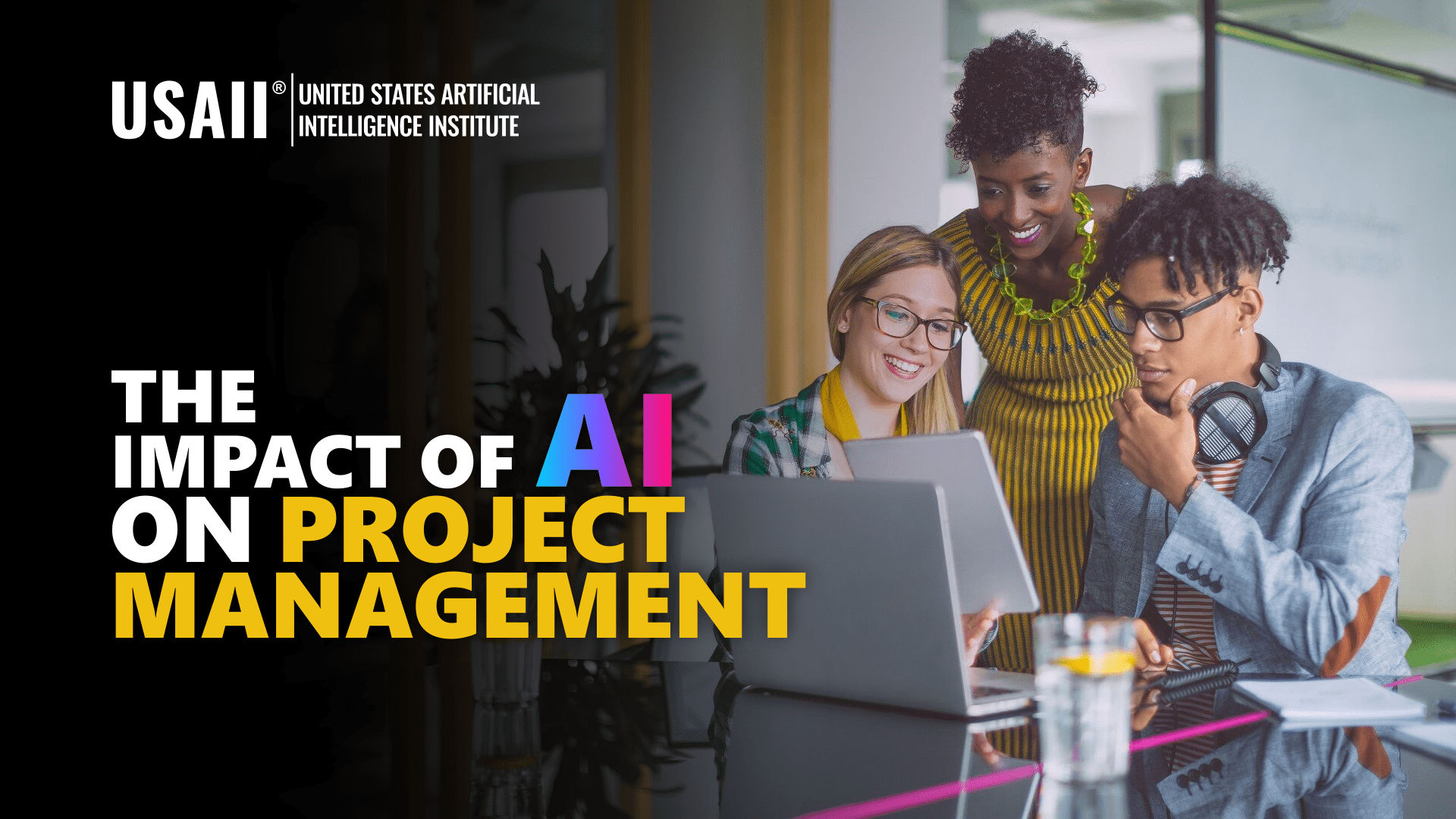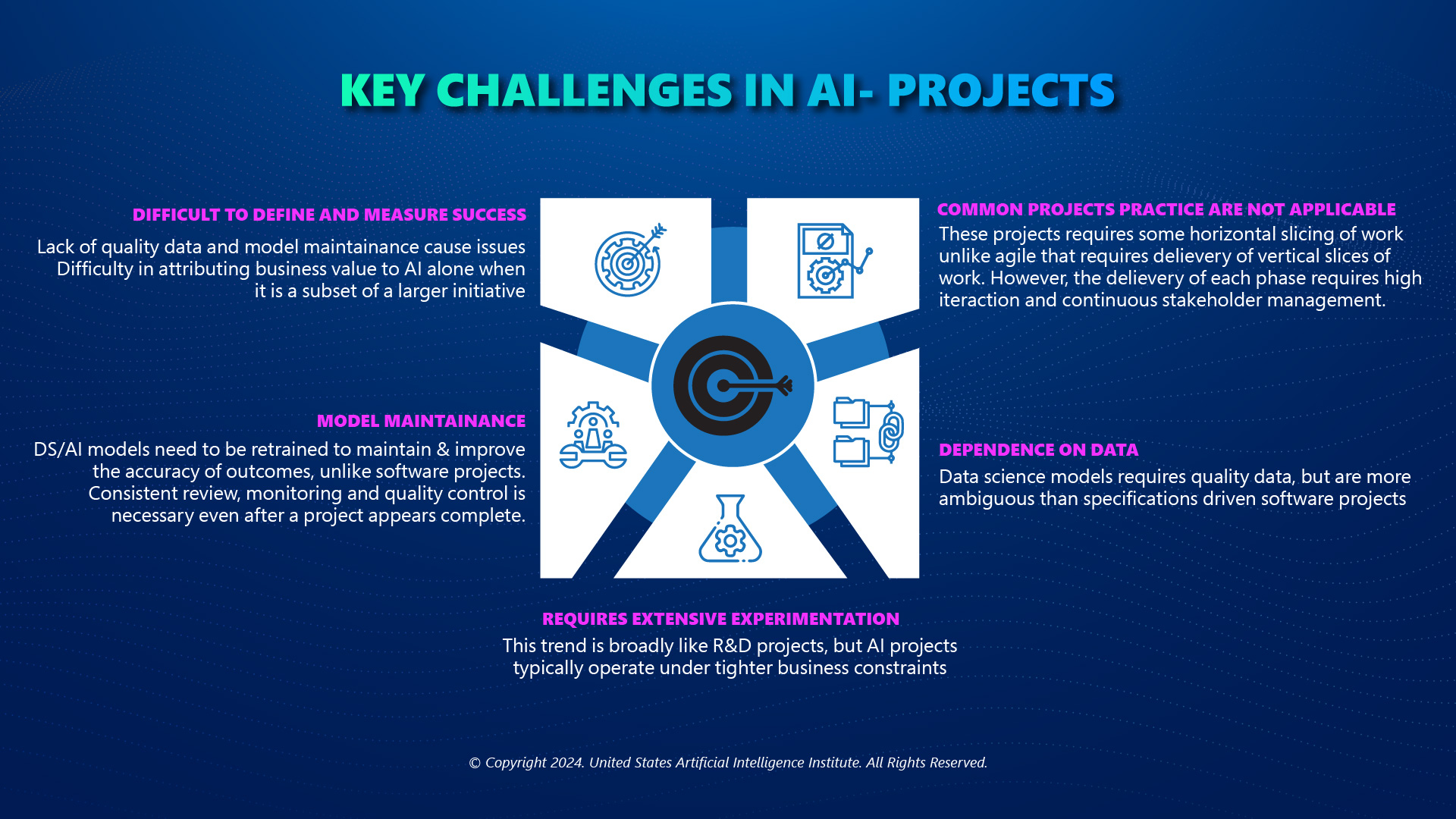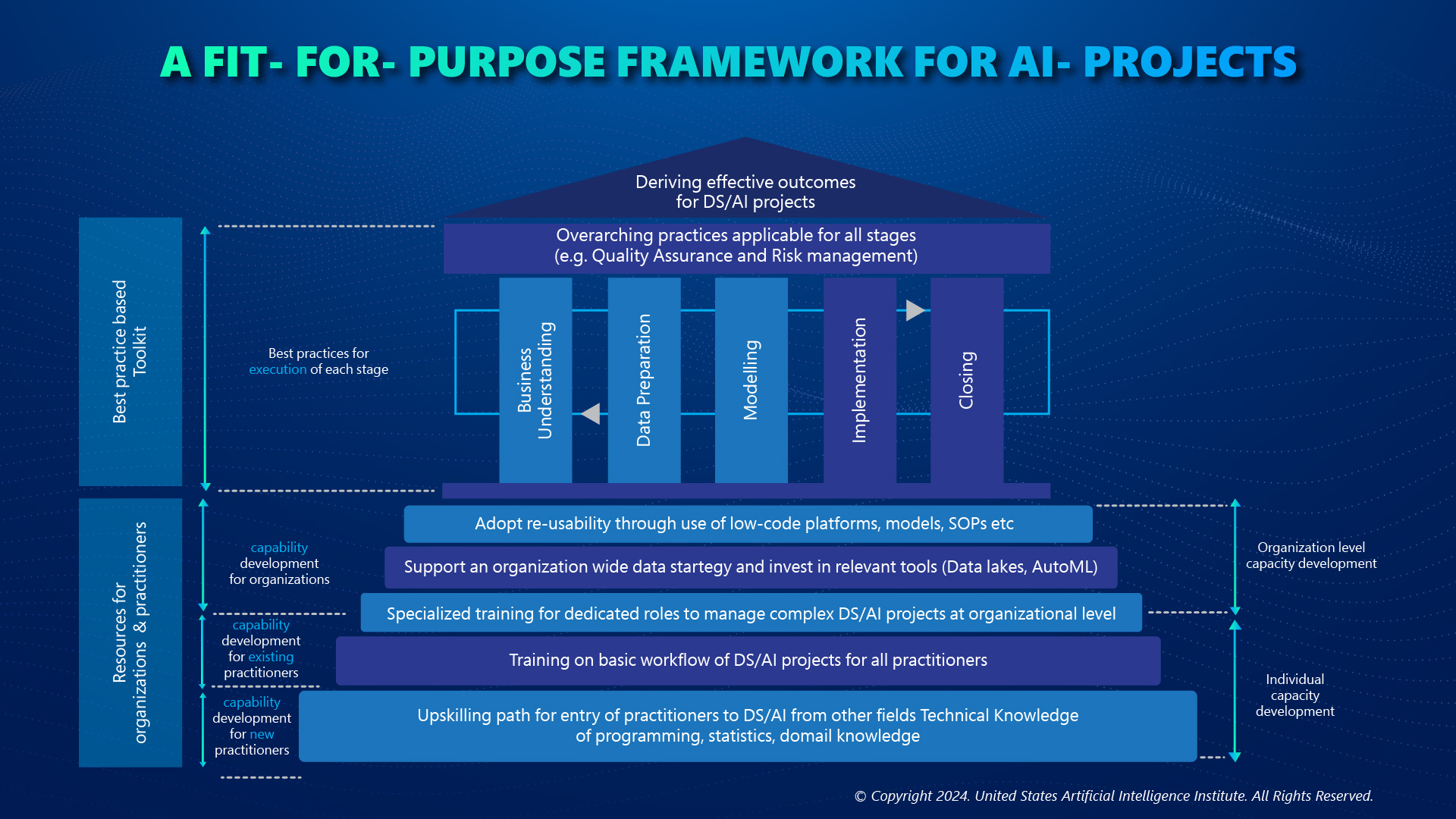
Artificial Intelligence (AI) is a technological development in our digital era and a fundamental change in industries' operations. Project management, the discipline that plans business change, is at the
edge of this transformation. Bringing AI into project management processes opens a new era marked by improved efficiency, predictive accuracy, and a better ability to deal with complexities.
However, this journey also involves challenges specific to AI and needs a strategic plan to overcome. Based on the "AI Project Management Playbook," this article explores the complex world of AI project management. It examines the mutual relationship between AI’s innovative potential and the strategic framework it needs to use effectively.
The AI Revolution in Project Management
AI has transformed project management beyond conventional methods, creating a new framework where predictive analytics, automation, and intelligent decision-making become standard. AI-based risk assessments and predictive service analytics can help anticipate project challenges,
optimize processes, and improve project results. The uses of AI in this field vary from automating tedious tasks to offering valuable insights through complex data analysis, highlighting AI's ability to boost the project management area to new heights of productivity and performance.
The Terrain of Challenges
AI's potential is not without challenges that are complex and diverse:

A Strategic Framework for AI Project Management
To address the challenges listed, an AI Project Management Framework that is carefully designed and inspired by the insights from the playbook is proposed:

Navigating Towards a Brighter Horizon
AI's incorporation into project management is a technological improvement and a strategic change that can reshape project execution and achievement. However, this changing process requires more than technology adoption; it needs a strategic, careful approach to addressing AI projects' inherent difficulties. By following the suggested AI Project Management Framework, organizations can use the full range of AI's abilities, ensuring projects are successful in their immediate results and helpful in creating long-term strategic value.
In summary, as we face this digital transformation, AI's integration into project management provides unparalleled efficiencies, strategic insights, and improved decision-making capabilities. Though challenging, the process provides opportunities for those willing to go through it with strategic vision, ethical awareness, and a dedication to continuous learning and adaptation. The future of project management, supported by AI, invites an era of innovation and success, promising to change how projects are planned, carried out, and delivered.
Follow us: